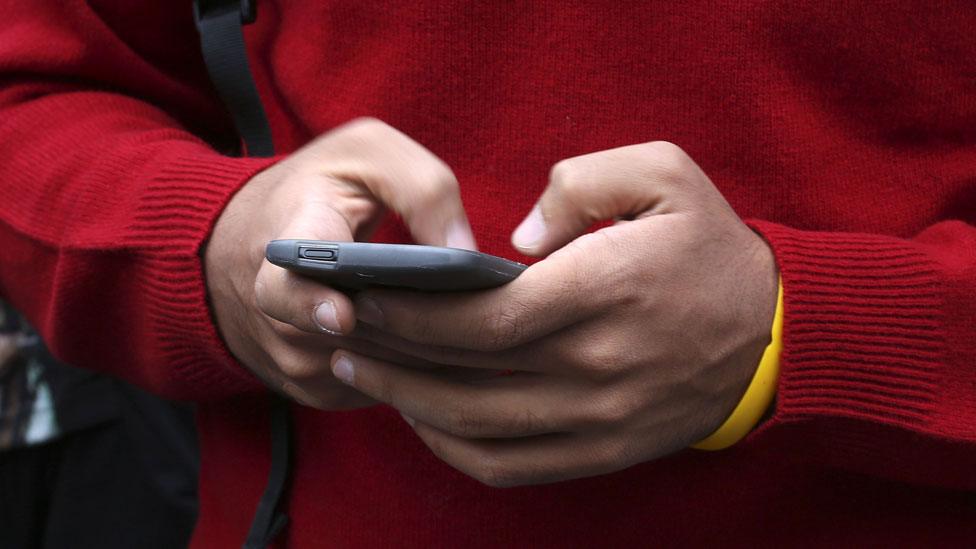Burglar's £45,000 phone bill paid by North Wales Police
- Published

North Wales Police paid a bill of £45,000 run up by a burglar while he was on bail after he was given a mobile phone by the force.
The phone had been given to the offender from Llangefni, Anglesey, as part of a project to reintegrate criminals into the community.
When the error emerged in 2014, it was found he had been given a contract SIM rather than a pay-as-you-go.
A criminal investigation was launched but no charges were brought.
The inquiry showed three people may have had access to the phone. Two people were arrested but neither was charged.
The force said the bill was due to high data charges for "video/music streaming" and various other "high-data volume internet applications".
It was linked to a SIM contract which was "not intended for such use".
North Wales Police said no disciplinary action had been taken against any member of staff and it has since reviewed and tightened up its mobile phone policy.

Police said it was "now no longer possible" to tell what websites were visited or data downloaded by the phone
Details released under a Freedom of Information request, external showed the Orange mobile was used for a number of months and the bills, which totalled £44,500, were paid monthly.
The force said it occasionally used "inexpensive pay as you go mobile phones" to maintain contact with "vulnerable victims of crime and offenders to integrate them back into the community".
This is done through the integrated offender management unit, working with those who are subject to court or prison licences or are not subject to probation supervision.
"This multi-agency team works to help individuals to positively change their life through access to support services," said director of finance and resources Tracey Martin.
"A phone allows two way communications between the offender and the support agencies to provide encouragement and to keep the individual on track for the benefit of the community as a whole.
"Unfortunately, on this occasion, a contract phone was mistakenly given and then misused. The situation was dealt with as soon as it came to light in 2014 and we have since improved our procedures to ensure that it can't happen again."